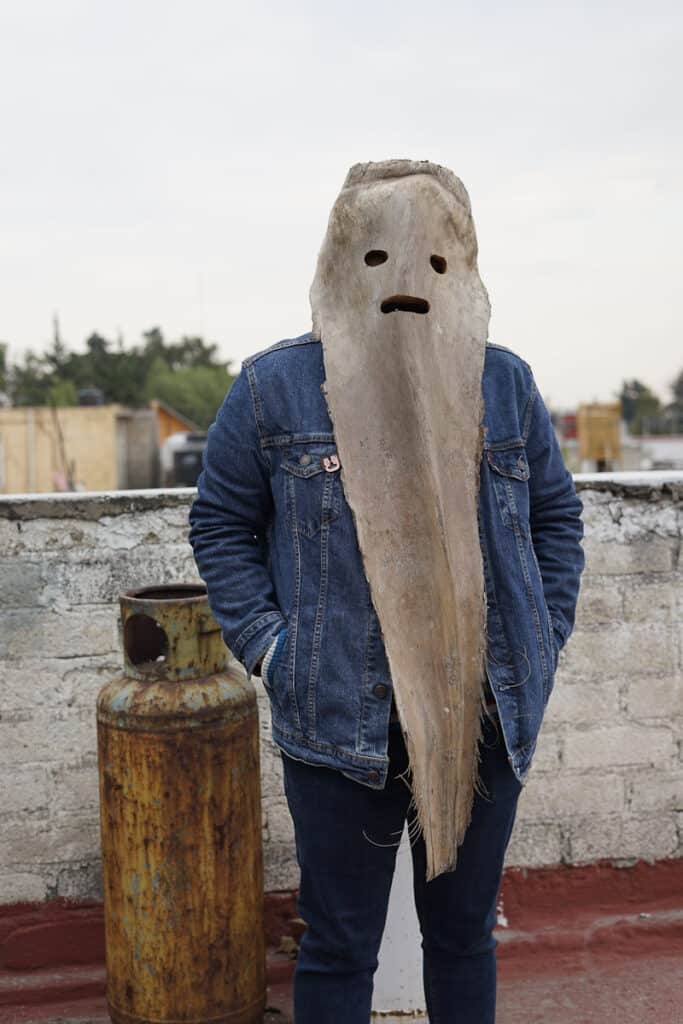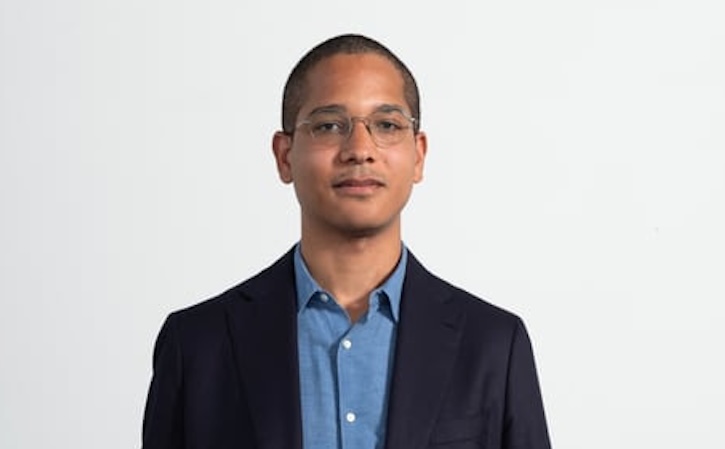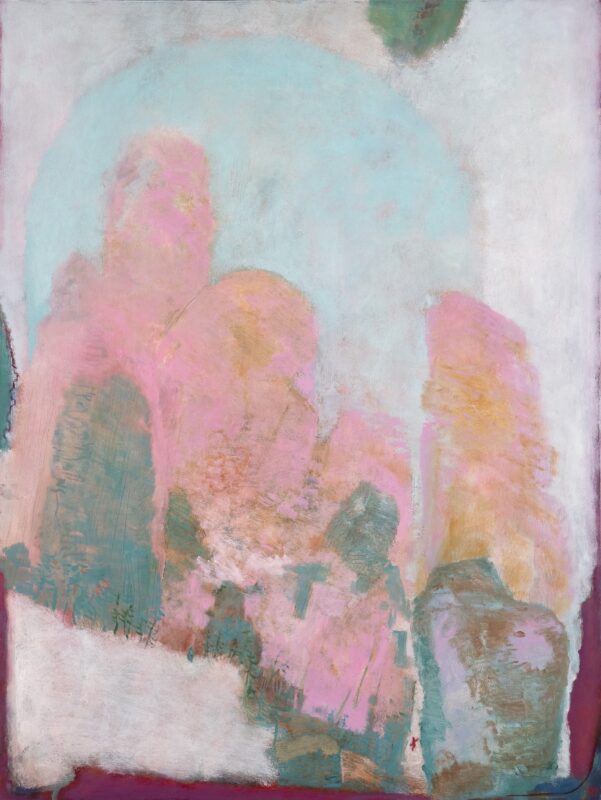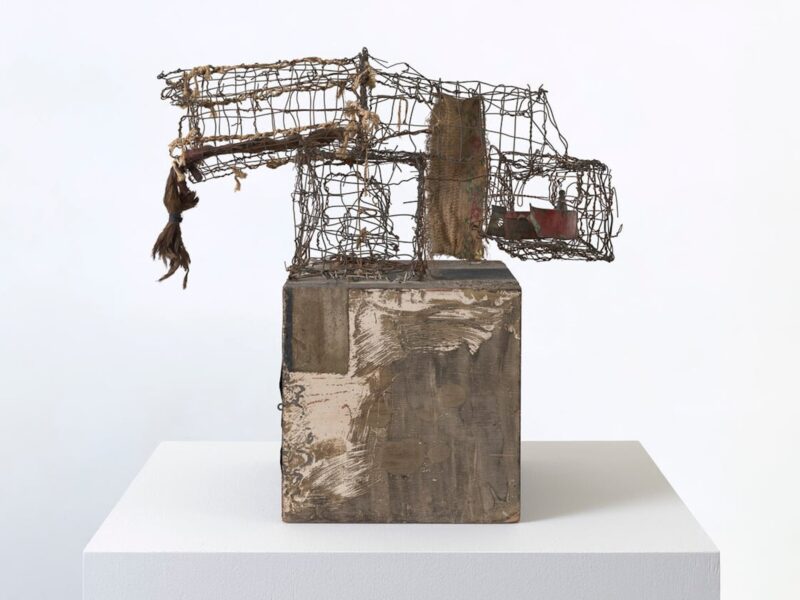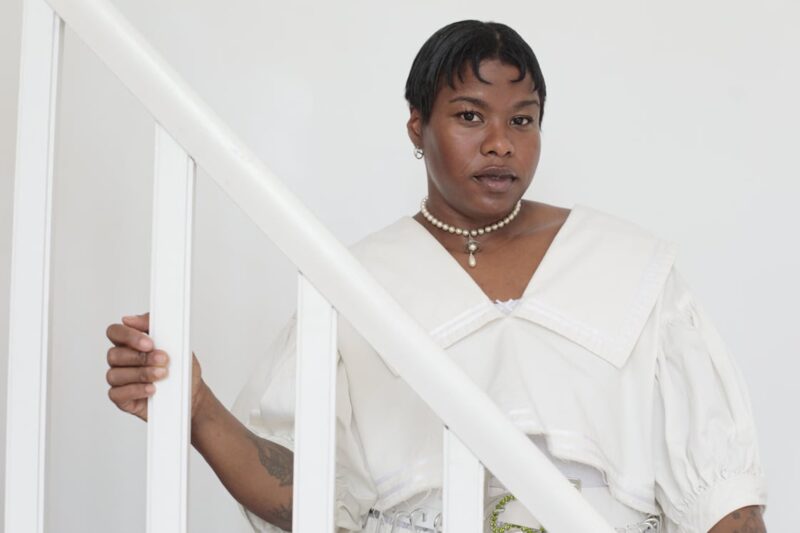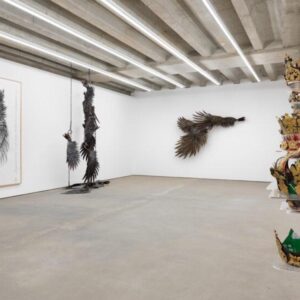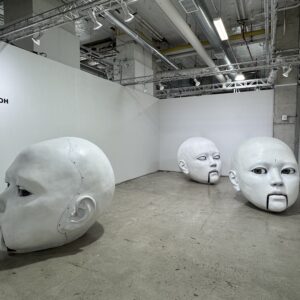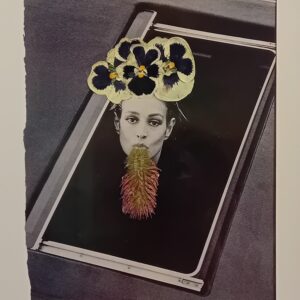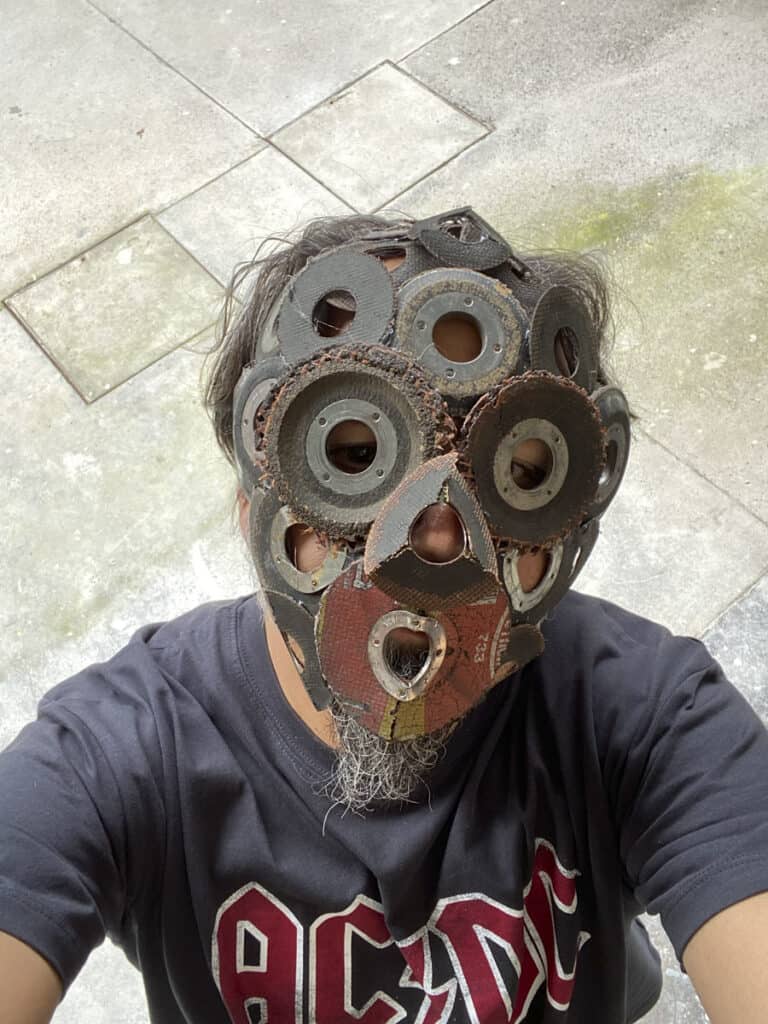
Just opened at Gladstone Gallery is an exhibition of new works by Damián Ortega. Known for his uncanny ability to transcend ordinary objects into entities with complex narratives, the artist presents a series of sculptural masks that explore the significant social, economic, and personal narratives embedded in the ephemera of the everyday. Throughout history, masks have played a crucial role in how human nature, identity, and culture are studied and understood. For this exhibition, Ortega has created a body of new works over the past year in a cathartic response to the pandemic, questioning what faces, characters, and personalities can build and become. Made with found materials that are staples of Mexican life, including guaje, yute, and maize tortillas, the masks on view are expressive and eloquent examples of both a socio-political critique and an intimate self-reflection.
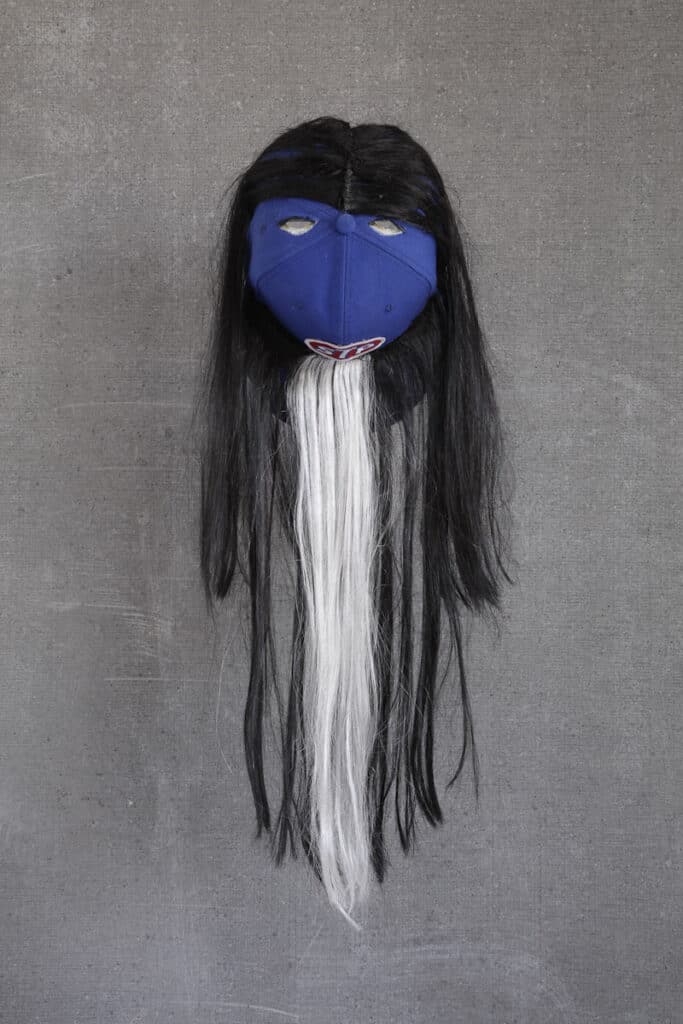
A few months ago, I read something that felt to me like a new reality: the need to go back to
artmaking in the kitchen, optimizing what we have on hand in the fridge, or in the garden. An
art of the immediate, which resulted from improvisation and acknowledging needs, that affects
our most nuclear and close community. An art that was intimate and self-referential, like jokes
among friends, or spectators on board the same boat in which we ship-wreck along with the
ghosts and demons that accompany us.
The need to share and dialogue led me to start making up characters. Masks always entail a
narrative and a dramaturgy. They are complex characters, and I would say they have a life of
their own. They create themselves. Many times, I surprised myself using unsuspected
materials, charged with a very particular energy and symbolism that seemed to be dictated by
their own shapes.
The variables of place and time made them very contemporary. The experience of animating
the dead or giving another life to waste or leftovers makes them rather universal and
extemporaneous. In the end, the masks are as old as fire and edge. The quest for these faces
is an eternal pursuit, like searching for one’s identity while trying to remain loyal to oneself. As
they say, masks don´t lie.
Collecting the residual and surplus material from other pieces is a great reality check exercise.
What has been made is important, but even more so, everything that was left out, squandered,
undervalued or abandoned. It is like all of these are telling you that your plans and your will
have consequences, like all that is left at the side of the road.
To make and follow my intuition was the rule, leaving my imagination to flow with no
complaints nor demands of addressing in a certain way or to over conceptualize. I think in this
case I was especially interested in listening to the objects and it was a real pleasure. The
masks appeared one after the other, like a manifestation or an unexpected visit of people that
arrive at a party. They appeared to me! I found someone I didn’t know I was.We played and had lots of fun dancing in the workshop. At the end of this process, I felt like
– Damián Ortega
the party had come to an end and that it became that sort of afterhours situation, in which one
can start cleaning up the house and make something for breakfast for the last guests in the
kitchen again! Then, we make a toast and laugh at all those crazy people that came. And what
is left is a feeling of wishing to make another scandal and celebrate life.
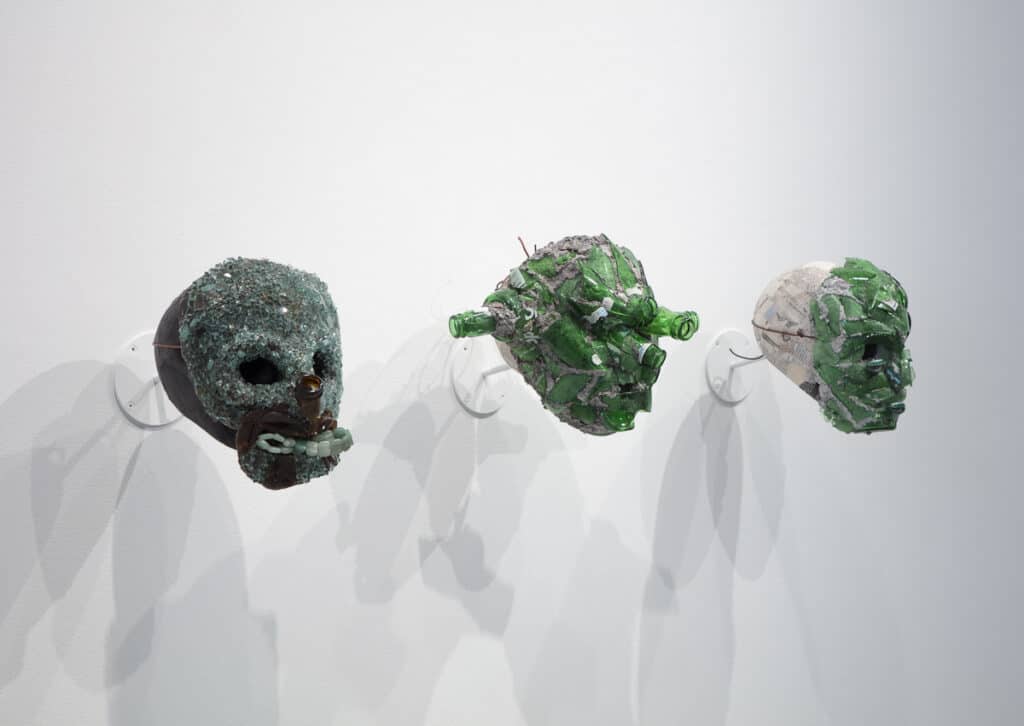
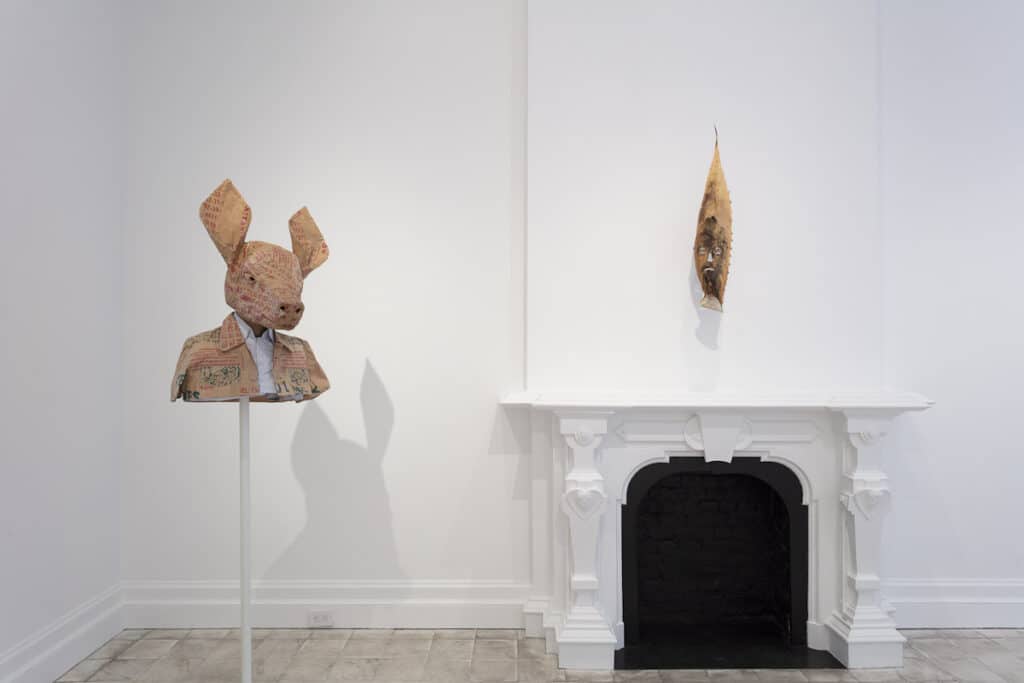
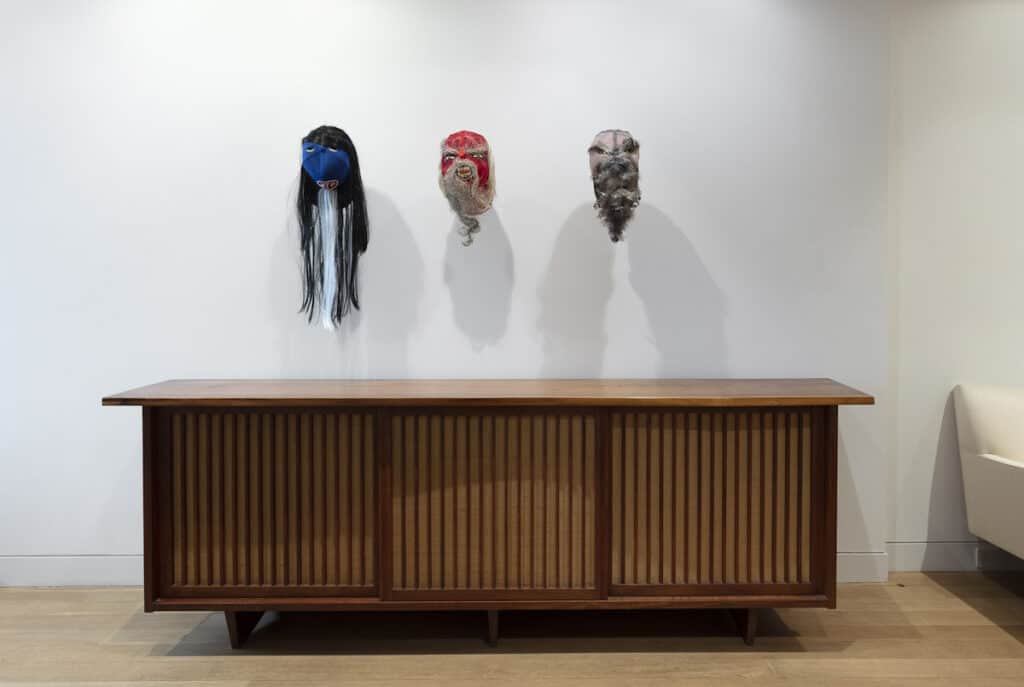
Damián Ortega Masks Gladstone Gallery – April 23rd , 2022
About the artist
Damián Ortega was born in 1967 in Mexico and currently lives and works in Mexico City and Berlin. He
has had solo exhibitions at notable international venues including: Garage Museum of Contemporary
Art, Moscow; The Fruitmarket Gallery, Edinburgh, United Kingdom; Museo Reina-Sofia, Madrid; Museu
de Arte Moderna do Rio de Janeiro; HangarBicocca, Milan; Museo Jumex, Mexico City; The Cleveland
Museum of Art; the Barbican, London; the Institute of Contemporary Art, Boston; Tate Modern, London;
Kunsthalle Basel; Institute of Contemporary Art, Philadelphia; and Centre Pompidou, Paris. Ortega
participated in the 55th Venice Biennale (2013); the 27th São Paulo Biennial (2006); the 4th Berlin
Biennial (2006); and the 50th Venice Biennale (2003).
